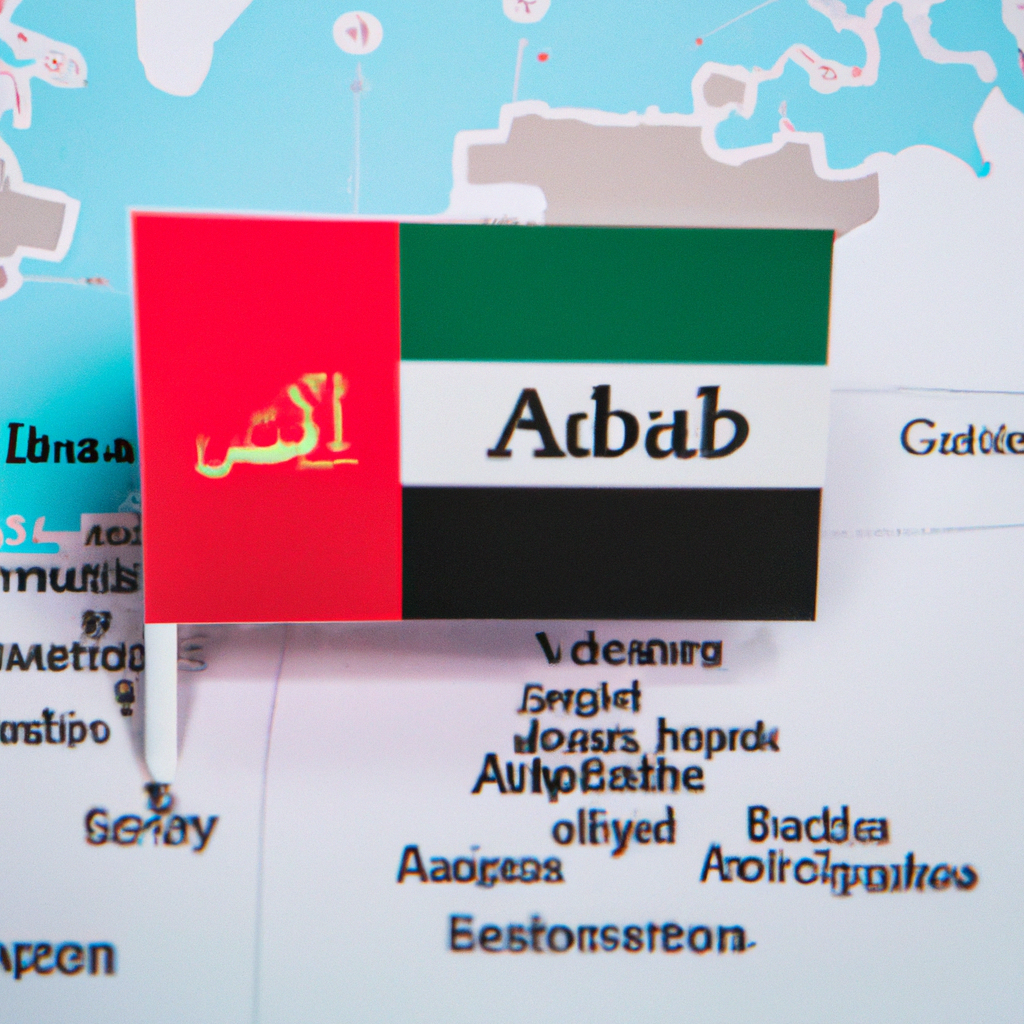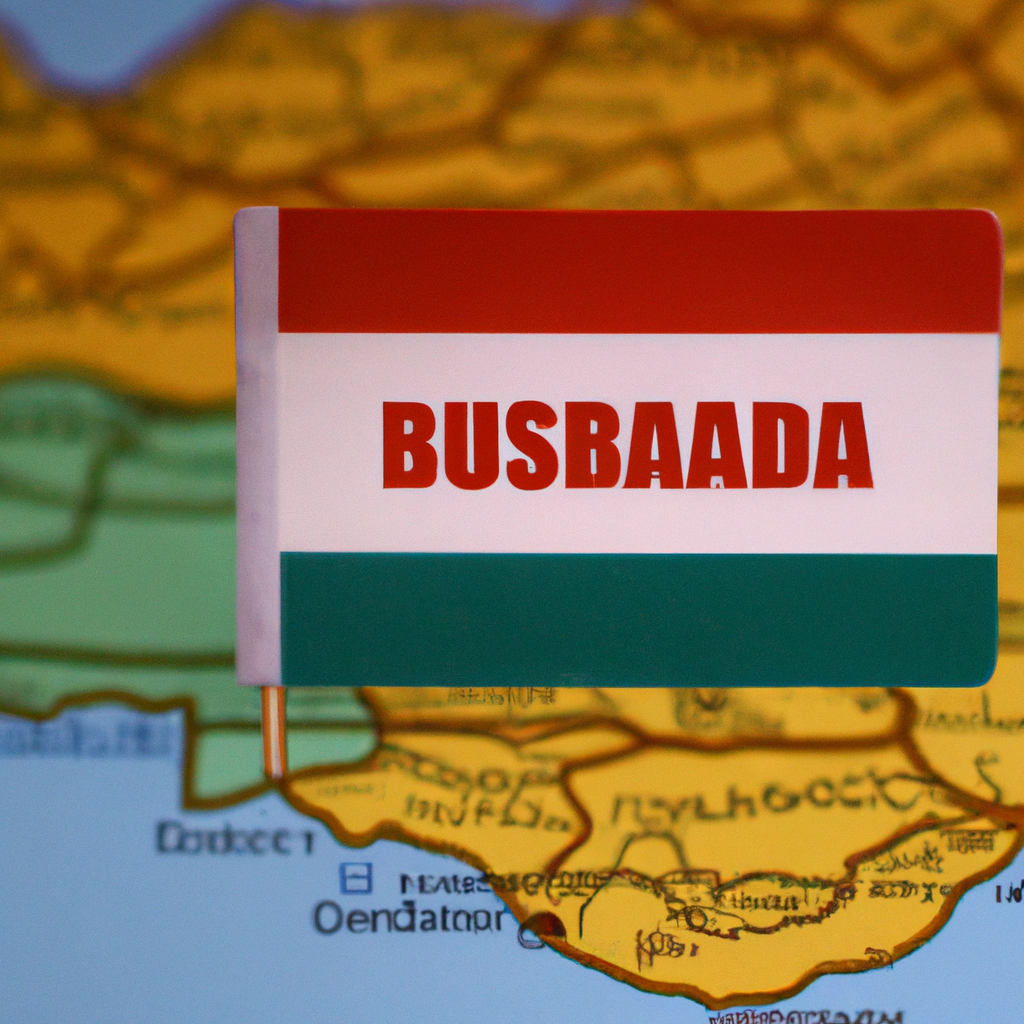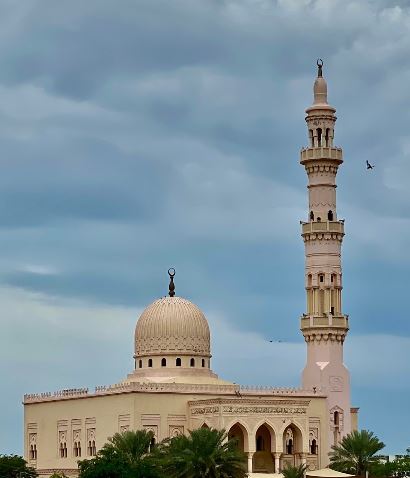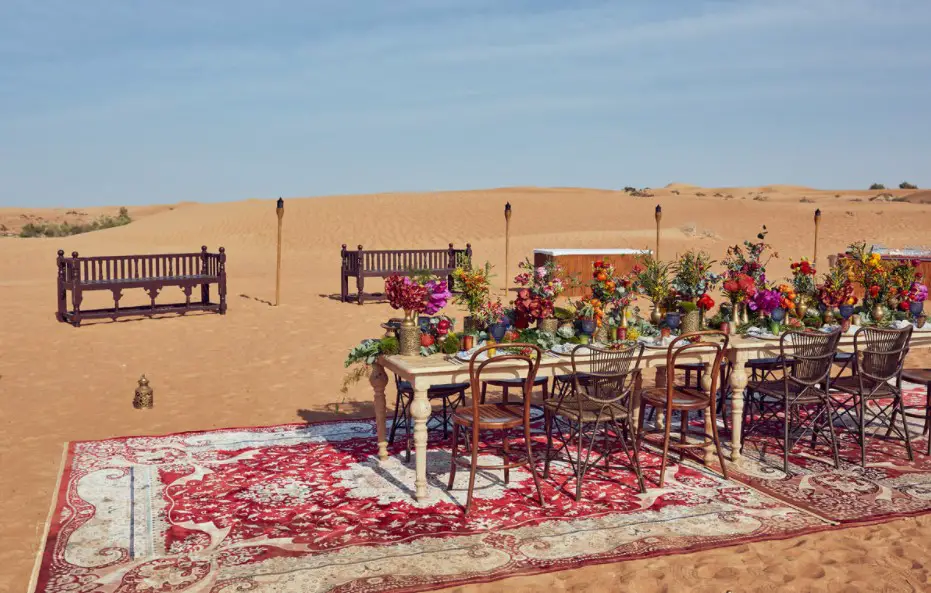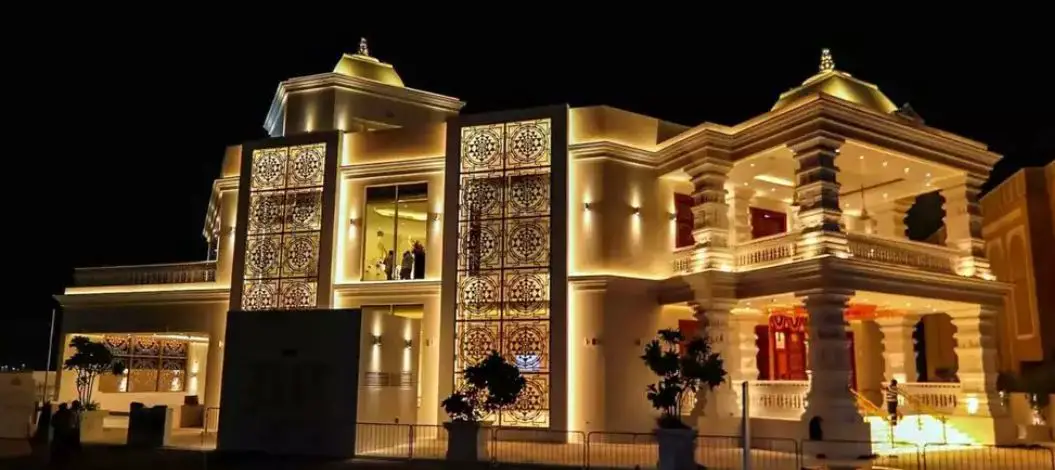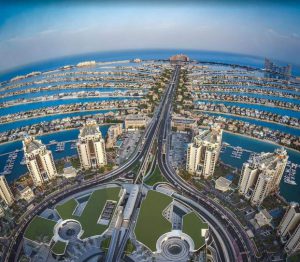Abu Dhabi, United Arab Emirates: Interesting Facts,History, Things to do,Why to Visit
Post ByAdequate Travel
Abu Dhabi is the capital of the United Arab Emirates, a Middle Eastern country known for its ultra-modern skyline and spectacular scenery. But what many travelers don’t know is that it has a rich cultural and historical past as well. From ancient artifacts to world-class attractions, Abu Dhabi has something to offer everyone who visits. Here we present some interesting facts, history, top things to do, and the reasons why you should visit this amazing city. Whether you’re looking for lively beaches, big-city hustle, or serene desert vistas, Abu Dhabi is sure to amaze and delight.
The United Arab Emirates (UAE) is a country located on the Arabian Peninsula in the Middle East. It is made up of seven emirates, including Dubai and Abu Dhabi, which are the most well-known and populous cities in the country. The UAE is known for its impressive infrastructure, modern architecture, and luxurious lifestyle. It has transformed from a desert landscape to a thriving economic center and tourist destination in a short span of time. The country's economy is highly diversified, with sectors such as oil and gas, tourism, finance, real estate, and retail playing a significant role.Dubai, in particular, has become a global hub for business, trade, and tourism. It boasts iconic landmarks like the Burj Khalifa, the world's tallest building, and Palm Jumeirah, an artificial archipelago. Abu Dhabi, the capital city, is home to the Sheikh Zayed Grand Mosque, a stunning architectural masterpiece.The UAE has a rich cultural heritage, rooted in Islamic traditions. The local Emirati population coexists with a large expatriate community, contributing to a diverse society. The country also values education and has invested heavily in building top-notch universities, attracting students from around the world.While the UAE offers a high standard of living, its society is quite conservative in many aspects. Local customs and Islamic laws dictate certain codes of conduct, particularly with regard to dress, behavior, and alcohol consumption.Overall, the UAE has experienced rapid development and is considered a progressive and forward-looking nation. It is constantly striving to innovate and attract investors, tourists, and talented individuals from across the globe, aiming to position itself as a global player in various industries.uae tourist attractions offer a diverse range of experiences for every traveler.
Interesting facts
Interesting Facts about the United Arab Emirates
1. Artificial Islands: The UAE is known for its impressive engineering endeavors, including the creation of artificial islands. The most famous example is the Palm Jumeirah, a man-made island in the shape of a palm tree located off the coast of Dubai.
2. Tallest Building: The UAE is home to the tallest building in the world, Burj Khalifa. Located in Dubai, this towering structure stands at a height of 828 meters (2,716 feet) and has become an iconic symbol of the country.
3. Multicultural Society: The UAE is a diverse and multicultural society, with people from more than 200 nationalities living and working in the country. This cultural fusion has contributed to a rich and vibrant environment, where various languages, traditions, and cuisines coexist.
4. Multi-Language Skill: Arabic is the official language of the UAE, but English is widely spoken and understood, especially in cities like Dubai. It is common for Emiratis to speak multiple languages, reflecting the country's international outlook.
5. World Records: The UAE prides itself on holding several Guinness World Records. These records range from the largest fireworks display to the longest graffiti scroll and showcase the nation's ambition for greatness.
6. Oasis Cities: Despite being known for its modern skyscrapers and urban landscapes, the UAE also contains hidden gems in the form of lush oasis cities. Al Ain, located about 160 kilometers east of Abu Dhabi, is a green haven with beautiful gardens, ancient forts, and a rich history.
7. Innovation Hub: The UAE is positioning itself as an innovation hub and has invested heavily in developing futuristic technologies. The city of Dubai, for example, plans to launch autonomous flying taxis, known as the Dubai Air Taxi, to revolutionize transportation within the city.
8. Wealth of Natural Beauty: In addition to its modern architecture, the UAE boasts stunning natural landscapes. From the golden sand dunes of the Arabian Desert to the pristine beaches along its coastline, the country offers a diverse range of outdoor activities and breathtaking scenery.
9. Date Palm Cultivation: The UAE has a long history of date palm cultivation. Palm trees play a prominent role in Emirati culture, providing shade, food, and materials for construction. The UAE produces a significant amount of dates, with Al Ain being a major hub for date farming.
10. Falconry Tradition: Falconry is an important tradition in the UAE, deeply rooted in Bedouin culture. Falcons are highly prized birds and are trained for hunting. The country even has its own dedicated hospital, the Abu Dhabi Falcon Hospital, which provides healthcare services for these majestic creatures.
From museums to parks,uae tourist attractions offer something for everyone, making it a versatile destination for all type of tourists.The History of the UAE
1. Early History:
The history of the United Arab Emirates (UAE) dates back several millennia. The region has been inhabited since the Stone Age, with archaeological evidence showing the presence of advanced civilizations. The area was known for its trade routes and maritime activities, connecting it to various ancient civilizations such as the Mesopotamians, Persians, and Romans.
2. Arab Tribes and Islamic Influence:
In the 7th century AD, Islam spread to the region, bringing significant cultural and social changes. The UAE was primarily inhabited by various Arab tribes, including the Bani Yas tribe which played a crucial role in the formation of the country. The Bani Yas tribe settled in the Abu Dhabi region and established alliances with other tribes, forming the basis of the UAE's political and social structure.
3. British Influence and Trucial States:
In the 19th century, the UAE and other neighboring Gulf states entered into treaties with the British Empire. These treaties, known as the "Trucial States," established a form of British protectorate over the region, primarily to secure maritime trade routes. The British presence had a significant impact on the political and economic landscape of the UAE.
4. Union of Emirates:
The modern-day UAE was officially formed on December 2, 1971, when seven of the Trucial States, namely Abu Dhabi, Dubai, Sharjah, Ajman, Umm al-Quwain, Fujairah, and Ras Al Khaimah, came together to create a federation. The remaining state, Bahrain, chose to become an independent nation. This union marked the beginning of a new era for the UAE, with increased cooperation and shared resources among the emirates.
5. Economic Growth and Development:
Since its formation, the UAE has undergone remarkable economic growth and development. The discovery of oil in the 1960s transformed the economy, leading to massive infrastructure projects, urbanization, and a rapidly expanding population. The diversification of the economy has been a key focus in recent years, with investments in sectors such as tourism, finance, real estate, and renewable energy.
6. Modern UAE:
Today, the UAE is known for its impressive skyline, luxurious lifestyle, and global influence. The country has established itself as a major player on the world stage, hosting international events like the Dubai Expo 2020, Formula 1 races, and various cultural festivals. The UAE's vision for the future includes sustainable development, innovative technologies, and continued prosperity.
Overall, the UAE's history highlights its rich cultural heritage, significant regional connections, and rapid development as a nation. From ancient civilizations and Arab tribes to British influence and the formation of a federation, the UAE's story is one of resilience, progress, and ambition.Exploring the rich heritage of historical sites in uae is a journey through time and culture.Famous Things of UAE
1. Burj Khalifa:
The Burj Khalifa is the tallest building in the world, located in Dubai. It stands at a height of 828 meters and has become an iconic symbol of the UAE. Tourists and locals alike visit the observation decks on the upper floors to enjoy panoramic views of the city.
2. Palm Jumeirah:
Palm Jumeirah is a man-made island in the shape of a palm tree, located on the coast of Dubai. It is home to luxurious hotels, resorts, and residential buildings. The island is known for its stunning beaches, fine dining restaurants, and vibrant nightlife.
3. Sheikh Zayed Grand Mosque:
The Sheikh Zayed Grand Mosque is one of the largest mosques in the world, located in Abu Dhabi. It is an architectural masterpiece, featuring intricate designs, gold-plated chandeliers, and the world's largest hand-woven carpet. The mosque is open to visitors and offers guided tours to provide insights into Islamic culture and architecture.
4. Dubai Mall:
Dubai Mall is one of the largest shopping malls globally, situated in Dubai. It offers a wide range of shopping, dining, and entertainment options. The mall is home to the Dubai Aquarium and Underwater Zoo, an Olympic-size ice rink, and the Dubai Fountain, which presents a stunning water and light show.
5. Emirates Palace:
Emirates Palace is a luxurious hotel in Abu Dhabi known for its opulence and grandeur. The palace-like hotel features stunning architecture, gold-decorated interiors, and extensive gardens. It offers various dining options, a pristine beach, and a world-class spa for guests to indulge in luxury.
6. Dubai Creek:
Dubai Creek is a natural saltwater creek that divides the city of Dubai into two sections: Deira and Bur Dubai. It has played a significant role in the city's development, and visitors can take traditional abras (water taxis) to experience the old charm of Dubai. The creek is also surrounded by cultural landmarks, such as the Dubai Museum and the Heritage Village.
7. Yas Island:
Yas Island, located in Abu Dhabi, is a popular entertainment destination. It is home to attractions such as Ferrari World, which houses the world's fastest roller coaster, and Yas Waterworld, a thrilling water park. The island also hosts the Abu Dhabi Grand Prix at the Yas Marina Circuit.
Discover some unique facts about uae that will leave you amaze and intrigue.Culture of UAE
The culture of the United Arab Emirates (UAE) is a unique blend of traditional Arab culture and the influence of the rapid modernization and globalization. The diverse and multicultural society in the UAE has resulted in a rich cultural tapestry that is deeply rooted in Islamic traditions and values. Here are some key aspects of the UAE's culture:Language
The official language of the UAE is Arabic, and it plays a significant role in the country's culture. Arabic is predominantly spoken by Emiratis, but due to the expatriate population, English is widely spoken as well. Other languages commonly heard in the UAE include Hindi, Urdu, Tagalog, and Malayalam, reflecting the multicultural nature of the society.Religion
Islam is the official religion of the UAE, and it shapes many aspects of Emirati culture and daily life. Mosques are an essential part of the urban landscape, and the call to prayer can be heard throughout the day. Islamic customs and rituals are followed by locals, such as fasting during Ramadan and observing Islamic holidays like Eid al-Fitr and Eid al-Adha.Traditional Dress
The traditional clothing in the UAE is a symbol of cultural identity and modesty. For men, the traditional dress is the Kandura (also called Dishdasha or Thawb), which is a long white robe. Women typically wear the Abaya, a loose black robe that covers their entire body, and often complement it with a headscarf known as the Shayla or the Ghutra.Cuisine
UAE's cuisine is a reflection of its history, being influenced by Arab, Persian, Indian, and East African culinary traditions. Traditional Emirati dishes often consist of rice, lamb, chicken, fish, and a variety of spices. Camel meat is also part of the traditional cuisine. Popular dishes include Machbous, a spiced rice dish with meat, and Luqaimat, sweet dumplings served with date syrup.Art and Music
The UAE has a thriving arts and music scene that embraces both traditional and contemporary forms. Traditional Emirati art includes calligraphy, pottery, and weaving, which are often used to depict Islamic motifs. The UAE is also home to numerous art galleries and museums that showcase local and international artists. Music in the UAE has evolved to include traditional Arab music, as well as a fusion of Western and Arab influences.Social Etiquette
Hospitality is highly valued in Emirati culture, and it is common for locals to extend invitations for meals or coffee as a sign of friendship and goodwill. It is important to dress modestly and respect local customs and traditions, especially in religious sites. In public spaces, it is encouraged to avoid public displays of affection and to greet people with the right hand as a sign of respect.Overall, the culture of the UAE is shaped by its Arab heritage, Islamic traditions, and the multiculturalism brought by its expatriate population. This unique blend creates a vibrant and diverse society that embraces both tradition and modernity.Immerse yourself in the local culture by exploring uae's top-rated tourist attractions.Cuisine of UAE
The cuisine of the United Arab Emirates (UAE) is diverse and reflects the multicultural nature of the country. As a result of the UAE's geographical location and historical trade routes, Emirati cuisine has been influenced by Arab, Persian, Indian, and African flavors. Traditional Emirati dishes are primarily based on locally available ingredients such as fish, rice, meat, and dates.
Traditional Emirati Dishes
1. Machbous: This is a popular rice dish made with meat, such as lamb or chicken, cooked with fragrant Arabian spices and served with rice.
2. Harees: It is a slow-cooked dish made of wheat and meat (usually chicken or lamb), resulting in a porridge-like consistency.
3. Majboos: Similar to Machbous but with the addition of dried limes, which give it a tangy flavor.
4. Ghuzi: A traditional Bedouin dish consisting of roasted lamb or mutton served on a bed of aromatic rice, garnished with nuts and served with a sauce.
5. Balaleet: A sweet and savory dish made of vermicelli noodles, topped with a saffron-flavored omelet and served with a date syrup.
Influences from Other Cuisines
1. Iranian Influence: Many dishes in the UAE are influenced by Iranian cuisine, such as Chelow Kebab (grilled meat served with saffron rice), Mirza Ghassemi (grilled eggplant and tomato stew), and various types of bread like Iranian bread and Sangak.
2. Indian Influence: The large Indian population in the UAE has contributed to the popularity of Indian dishes like biryani, curry, and kebabs, which have become an integral part of Emirati cuisine.
3. Lebanese Influence: Lebanese cuisine, with its flavorful mezze platters, grilled meats, and freshly baked bread, has also found its place in Emirati cuisine.
Modern Fusion Cuisine
With the influx of tourists, expatriates, and international restaurants, UAE's culinary scene has seen the rise of modern fusion cuisine. Chefs in the UAE experiment with blending traditional Emirati flavors with global culinary techniques. This has resulted in unique dishes such as camel burgers, falafel sushi, and date-filled pastries infused with French flavors.
Overall, the cuisine of the UAE is a delightful fusion of traditional Emirati dishes, influenced by Arab, Persian, Indian, and African flavors, as well as modern fusion cuisine offerings that cater to the diverse population of the country.
Discover the untold stories behind uae unique facts, and historical treasures.Things to Do in the UAE
1. Visit the Burj Khalifa
The Burj Khalifa is the tallest building in the world and a must-visit attraction in the UAE. Standing at a height of 828 meters, you can take an elevator ride to the observation decks on the 124th and 148th floors. The view from the top offers panoramic vistas of the city of Dubai.
2. Explore the Dubai Mall
The Dubai Mall is one of the largest shopping malls in the world and offers a diverse range of activities and entertainment options. Aside from shopping at high-end designer stores, you can visit the Dubai Aquarium & Underwater Zoo, watch the mesmerizing Dubai Fountain show, or enjoy the indoor ice rink.
3. Take a Desert Safari
A desert safari is a thrilling adventure that allows you to experience the desert landscape of the UAE. You can enjoy activities such as dune bashing, camel riding, sandboarding, and even traditional Arabian entertainment like belly dancing. It's a great way to get a taste of the Emirati culture and enjoy the stunning desert scenery.
4. Visit the Sheikh Zayed Grand Mosque
The Sheikh Zayed Grand Mosque is one of the largest mosques in the world and a significant architectural landmark in Abu Dhabi. It features stunning white marble domes, intricate carvings, and magnificent prayer halls. Visitors are welcome to explore the mosque and learn about Islamic culture and heritage.
5. Experience the Palm Jumeirah
The Palm Jumeirah is an artificial archipelago in Dubai shaped like a palm tree. It is home to luxurious resorts, hotels, and villas. You can relax on beautiful beaches, indulge in water sports, or treat yourself to fine dining experiences. Don't forget to take a stroll on the Palm Jumeirah Boardwalk for stunning views of the skyline.
When planning your trip to uae, be sure to include the best things to do in uae, which encompass a wide range of cultural experiences.Climate of UAE
The United Arab Emirates (UAE) experiences a desert climate, characterized by hot summers and mild winters. The climate is mainly influenced by the country's location in the southeast of the Arabian Peninsula, with its proximity to the Arabian Gulf and the Arabian Sea.
Summer Climate
In the summer months of June to September, the UAE experiences high temperatures averaging around 40-45 degrees Celsius (104-113 degrees Fahrenheit). The humidity levels are relatively high, especially along the coastal areas, making the heat more intense. The nights can still be warm, with temperatures rarely dropping below 30 degrees Celsius (86 degrees Fahrenheit).
Winter Climate
During the winter months of December to February, the temperatures in the UAE become more pleasant, with average highs ranging from 24-28 degrees Celsius (75-82 degrees Fahrenheit). The nights can be cooler, with temperatures dropping to around 15 degrees Celsius (59 degrees Fahrenheit) or lower. However, the winters in the UAE are still relatively mild compared to many other countries, and the overall climate remains dry.
Annual Rainfall
The UAE experiences very limited rainfall throughout the year, with most of the precipitation occurring during the winter months. The average annual rainfall ranges from 50 to 100 millimeters (1.97 to 3.94 inches) in coastal areas, while the interior parts of the country receive even less rainfall. This arid climate contributes to the vast stretches of desert landscape that dominate the UAE.
Dust Storms
Due to the arid conditions, the UAE is prone to dust storms, especially during the summer months. These sand and dust storms, known as "haboobs," occur due to strong winds that pick up loose particles and create dusty conditions. These dust storms can reduce visibility and impact daily activities, prompting authorities to issue warnings and advise precautions during such events.
Importance of Climate Adaptation
Given the extreme climate conditions, the UAE government has implemented various measures to adapt to its unique climate. This includes building infrastructure to mitigate the impact of heat, such as shading systems, cool pavement, and improved insulation in buildings. Additionally, the UAE is investing in renewable energy sources to reduce reliance on fossil fuels and combat climate change.
Conclusion
The UAE's climate is characterized by hot and dry summers, mild winters, limited rainfall, and the occurrence of dust storms. The country takes proactive steps to adapt to its climate conditions and prioritize sustainability in its development plans.
Step back in time as you visit the historical sites in uae, where the past comes alive.Popular Activities in UAE
1. Desert Safari: Experience an adventurous ride through the golden sand dunes of the UAE's deserts. You can enjoy activities like dune bashing, sandboarding, and camel riding to get a taste of traditional Bedouin culture.Desert Safari
- Dune bashing: Hold on tight as you ride through the desert in a 4x4 vehicle, skilfully maneuvering over the sand dunes.- Sandboarding: Stand on a board and slide down the slopes of sand, similar to snowboarding. It's a thrilling activity suitable for all levels of experience.- Camel riding: Get a glimpse of the nomadic lifestyle by riding a camel, one of the essential modes of transportation in the desert.2. City Tours: Explore the iconic landmarks of UAE's modern cities, such as Dubai and Abu Dhabi. Visit the world's tallest building, Burj Khalifa, and admire the grandeur of the Sheikh Zayed Grand Mosque, among many other architectural marvels in the cities.City Tours
- Burj Khalifa: Take an elevator to the top of the tallest building in the world and enjoy breathtaking views of the city skyline from the observation deck.- Sheikh Zayed Grand Mosque: Explore the stunning marble structure adorned with intricate designs, chandeliers, and the world's largest hand-woven carpet.3. Water Sports: With its pristine beaches and crystal clear waters, UAE offers a plethora of water activities for adventure enthusiasts. Try out activities like jet skiing, parasailing, scuba diving, and snorkeling.Water Sports
- Jet skiing: Feel the adrenaline rush by riding a powerful watercraft and zooming across the waves.- Parasailing: Get a bird's-eye view of the coastline as you float in the air while being towed by a boat.- Scuba diving and snorkeling: Dive into the warm waters of the Arabian Gulf to explore vibrant coral reefs and encounter marine life.4. Shopping: UAE is known for its luxurious malls and vibrant traditional markets, also known as souks. Indulge in some retail therapy by visiting places like Dubai Mall, Mall of the Emirates, and the Gold Souk in Dubai, or the Central Market in Abu Dhabi.Shopping
- Dubai Mall: Explore one of the largest malls in the world, offering a wide range of international brands, entertainment options, and attractions like an indoor aquarium and ice rink.- Gold Souk: Wander through the traditional market filled with shops selling exquisite gold jewelry and precious gemstones.These are just a few popular activities in the UAE. The country offers a diverse range of experiences, including cultural tours, theme parks, golfing, and luxury dining, ensuring there is something for everyone to enjoy during their visit.Plan your trip with a list of the best things to do in uae, catering to all interests.Night Life in UAE
The United Arab Emirates (UAE) offers a vibrant and exciting nightlife scene with various options for everyone. From bustling cities like Dubai and Abu Dhabi to the more relaxed areas like Sharjah and Ajman, there are plenty of places to explore and enjoy after the sun goes down.
Nightclubs and Bars
Dubai is known for its lively nightlife, offering a wide range of nightclubs and bars that cater to different tastes. Some popular destinations include Zero Gravity, White Dubai, and Cirque Le Soir, which host world-renowned DJs, live music performances, and themed parties. These establishments often require a cover charge and enforce dress codes to maintain a sophisticated atmosphere.
Beach Parties
With the UAE's stunning coastline, beach parties are another popular option for those seeking a memorable night out. The Palm Jumeirah and JBR Beach in Dubai regularly host beach parties with DJ sets, BBQs, and water sports activities. These events offer a unique combination of entertainment, picturesque views, and a festive ambiance.
Rooftop Bars
Several rooftop bars can be found in the UAE's cities, offering breathtaking views and a sophisticated atmosphere. The Chillout Lounge at the Times Square Center rooftop in Dubai, for example, provides a cozy ice-themed setting where visitors can enjoy mocktails and hot chocolate while surrounded by ice sculptures. Other popular rooftop bars include Iris Dubai and Level 43 Sky Lounge, both offering stunning views of Dubai's skyline.
Cultural Experience
For those interested in a more traditional and cultural nightlife experience, there are various options available in the UAE. Traditional restaurants such as Al Fanar in Dubai and Al Arish in Abu Dhabi offer authentic Arabian cuisine, live music performances, belly dancing, and shisha smoking. These venues provide a glimpse into the rich Emirati culture and heritage.
Festivals and Events
The UAE hosts numerous festivals and events throughout the year that showcase the country's vibrant nightlife. The Dubai Shopping Festival and Dubai Summer Surprises are renowned for their entertainment programs, including live concerts, street performances, and fireworks displays. These festivals attract both locals and tourists, creating a dynamic and energetic atmosphere.
Overall, the UAE's nightlife offers something for everyone, from high-energy nightclubs to relaxed beach parties and cultural experiences. Whether you prefer dancing the night away, sipping cocktails with a stunning view, or immersing yourself in Emirati traditions, the UAE's night scene has it all.Step back in time as you visit the historical sites in uae, where the past comes alive.Reasons to Visit UAE
United Arab Emirates (UAE) is a fascinating and diverse country that offers a range of attractions to visitors from around the world. From futuristic skyscrapers to ancient historical sites, here are some compelling reasons to visit UAE:
1. Iconic Landmarks
The UAE is home to some of the world's most iconic landmarks. One particular example is the Burj Khalifa in Dubai, the tallest building in the world. Visitors can take an elevator to the observation deck on the 148th floor and enjoy unparalleled views of the city. Another famous landmark is the Sheikh Zayed Grand Mosque in Abu Dhabi, which features stunning architecture and intricate details.
2. Shopping Paradises
UAE is renowned as a shopping paradise due to its numerous extravagant shopping malls and traditional markets. The Dubai Mall, for instance, is the largest shopping mall in the world and houses a vast range of shops, restaurants, and entertainment options. Additionally, the traditional markets or souks, such as the Gold Souk in Dubai and the Central Market in Abu Dhabi, offer unique cultural experiences and the opportunity to find traditional crafts and exquisite jewelry.
3. Rich Cultural Heritage
Despite its modern infrastructure, the UAE has managed to preserve its rich cultural heritage. Visitors can explore the Al Bastakiya area in Dubai, a historic neighborhood with traditional Arabian architecture and narrow alleyways. The Heritage Village in Abu Dhabi is another must-visit, showcasing the Bedouin way of life with traditional crafts, music, and dance performances.
4. Thriving Culinary Scene
The UAE boasts a vibrant culinary scene that showcases a fusion of flavors from around the world. From high-end restaurants to street food stalls, there is something to suit every palate. Traditional Emirati cuisine is a must-try, with dishes like Machbous (spiced rice with meat), Harees (a creamy dish made from wheat and meat), and Luqaimat (sweet dumplings) being popular choices.
5. Outdoor Adventures
For nature enthusiasts, the UAE offers a plethora of outdoor adventures. Visitors can explore the stunning sand dunes of the Arabian Desert through a thrilling desert safari, which includes activities like dune bashing, camel riding, and sandboarding. The Hajar Mountains provide an opportunity for hiking and rock climbing, while the coastline offers various water sports such as snorkeling, diving, and jet skiing.
In conclusion, UAE is a captivating destination with a blend of modernity and tradition. Whether it's exploring iconic landmarks, indulging in a diverse culinary scene, immersing in the rich cultural heritage, or embarking on thrilling outdoor adventures, UAE has something to offer for every traveler.Whether you're a history buff or an adventure seeker, uae has an attraction for you. So, don't miss the chance to visit popular places in uaeNumber of days required to visit UAE
There is no fixed number of days required to visit the UAE as it largely depends on the purpose of your visit, the places you want to explore, and your personal preferences. Here are some factors to consider when planning the duration of your trip:1. Purpose of Visit:
If you are visiting UAE for a specific purpose such as a business trip, attending a conference, or meeting a client, then the duration of your stay may be determined by the length of those engagements.Example:
If you are attending a two-day conference in Dubai, then you may only need to stay for three or four days in total, including travel time.2. Places to Explore:
The UAE offers a wide range of attractions and activities to explore, from stunning modern cities to pristine beaches and awe-inspiring deserts. The number of days required will depend on the number of places you want to visit and the amount of time you want to spend at each location.Example:
If you plan to visit Dubai, Abu Dhabi, and explore the desert, you may need a minimum of five to seven days to cover these major attractions and fully experience what they have to offer.3. Personal Preferences:
Your personal preferences and interests also play a role in determining the duration of your stay. If you enjoy leisurely vacations and want to take your time exploring each destination, you may need more days compared to someone who prefers a quick-paced trip.Example:
If you enjoy shopping, entertainment, and experiencing the vibrant nightlife in Dubai, you may want to allocate extra days to fully indulge in these activities.4. Visa Regulations:
Visa regulations are another crucial factor to consider. Depending on your nationality, you may be eligible for a visa on arrival or need to apply for a visa in advance. The duration of your visa will determine the maximum number of days you can stay in the UAE.Example:
If you are eligible for a 30-day visa on arrival, you can stay in the UAE for a maximum of 30 days. However, this does not mean you need to stay for the entire duration.In conclusion, the number of days required to visit the UAE depends on various factors such as the purpose of your visit, the places you want to explore, your personal preferences, and the visa regulations. It is recommended to plan your itinerary in advance, considering all these factors, to make the most out of your trip.uae tourist attractions offer a diverse range of experiences for every traveler.Significance of UAE
The United Arab Emirates (UAE) holds immense significance in various aspects, including economic, political, cultural, and tourism. Here are some key points highlighting the importance of the UAE:
Economic Significance
- Economic Diversification: The UAE has successfully diversified its economy from relying heavily on oil to various other sectors such as finance, real estate, tourism, and logistics. This diversification has reduced the country's dependence on oil revenues and increased economic stability.
- Business Hub: UAE, particularly Dubai, has emerged as a global business hub, attracting multinational companies and entrepreneurs from across the globe. The favorable business environment, infrastructure, and strategic location make the UAE an ideal destination for conducting regional and international trade.
- Free Zones: The country has established numerous free zones that offer tax incentives, 100% foreign ownership, and simplified procedures for businesses. These free zones have attracted foreign investments and fostered economic growth.
Political Significance
- Diplomatic Relations: The UAE maintains strong diplomatic relations with countries around the world. The country actively participates in regional and international affairs, plays a crucial role in the Gulf Cooperation Council (GCC), and has hosted various significant events and conferences.
- Stability: The UAE is recognized for its political stability, which provides a safe and secure environment for businesses and residents alike. The stable political climate attracts foreign investments and expatriates from diverse backgrounds.
- Humanitarian Aid: The UAE has been actively involved in providing humanitarian aid and contributing to global development. Through various organizations and initiatives, the UAE has supported countries affected by conflicts, natural disasters, and poverty.
Cultural Significance
- Cultural Exchange: The UAE is a melting pot of diverse cultures. It is home to people from different nationalities, fostering cultural exchange, tolerance, and understanding. The country actively promotes multiculturalism, hosting events, exhibitions, and festivals that celebrate various cultures.
- Preservation of Heritage: Despite rapid modernization, the UAE places great emphasis on preserving its rich cultural heritage. It has established museums, cultural centers, and heritage sites to safeguard its history and traditions.
Tourism Significance
- Iconic Landmarks: The UAE boasts numerous iconic landmarks that attract tourists from all over the world. From the Burj Khalifa, the world's tallest building, to the architectural marvels of Abu Dhabi's Sheikh Zayed Grand Mosque, these landmarks showcase the country's grandeur and innovation.
- Luxury Tourism: The UAE offers unparalleled luxury and hospitality, with extravagant hotels, resorts, and shopping destinations. Dubai, in particular, is renowned for its luxurious offerings, including the Palm Jumeirah and the Dubai Mall.
- Cultural and Adventure Tourism: The UAE also offers a vast array of cultural and adventure tourism opportunities. Visitors can explore traditional souks (markets), experience desert safaris, indulge in traditional Arabian cuisine, and engage in water sports along the stunning coastlines.
In conclusion, the UAE holds immense significance in terms of its economic diversification, political stability, cultural exchange, and tourist attractions. The country's achievements and developments have positioned it as a global player, attracting businesses, tourists, and creating a multicultural society. It continues to play a crucial role in regional and international affairs while actively promoting its heritage and contributing to global humanitarian efforts.From hidden gems to iconic landmarks, uae has something for every traveler's taste.1. What is the capital city of the UAE?
The capital city of the UAE is Abu Dhabi. It is the largest of the UAE's seven emirates and serves as the political and administrative center of the country. Abu Dhabi is known for its stunning modern architecture, vibrant cultural scene, and luxurious lifestyle.
Example:
- Abu Dhabi is home to iconic buildings such as the Sheikh Zayed Grand Mosque and the Emirates Palace Hotel.
- The city offers various cultural attractions, including museums, art galleries, and the annual Abu Dhabi Festival.
2. What language is spoken in the UAE?
The official language of the UAE is Arabic. However, due to its diverse population, English is widely understood and spoken, especially in urban areas, business settings, and the tourism sector.
Example:
- In Dubai, a major city in the UAE, signs, menus, and official announcements are often presented in both Arabic and English.
- English is commonly used in international schools and universities, making it easy for foreign residents and visitors to communicate.
3. What is the currency of the UAE?
The currency of the UAE is the UAE dirham (AED). It is abbreviated as "د.إ" or "Dhs" and is further divided into fils. The dirham is commonly used for day-to-day transactions, and major credit cards are widely accepted.
Example:
- When you visit the UAE, it is advisable to have some dirhams on hand for small purchases, transportation fares, and tipping.
- Currency exchange services can be found in airports, shopping malls, and major tourist areas.
4. What is the climate like in the UAE?
The UAE has a desert climate characterized by hot summers and mild winters. The summer season can be extremely hot, with temperatures often exceeding 40°C (104°F). Winters are generally pleasant, with average temperatures ranging from 14°C to 24°C (57°F to 75°F).
Example:
- It is important to stay hydrated and wear appropriate clothing to protect yourself from the intense heat during the summer months in the UAE.
- Many outdoor activities and events are organized during the winter season when the weather is more favorable.
5. What are some popular tourist attractions in the UAE?
The UAE offers a wide range of tourist attractions, from stunning architectural wonders to thrilling adventure activities. Some popular attractions include the Burj Khalifa, Palm Jumeirah, Sheikh Zayed Grand Mosque, Ferrari World Abu Dhabi, and the Dubai Desert Safari.
Example:
- The Burj Khalifa in Dubai is the tallest building in the world, providing breathtaking views of the city from its observation decks.
- The Dubai Desert Safari offers thrilling experiences such as dune bashing, camel riding, and traditional Bedouin entertainment.
6. What are the major industries in the UAE?
The UAE has a diverse economy, with major industries including oil and gas, tourism, real estate, finance, and construction. The country is known for its significant oil reserves, but it has also focused on diversifying its economy through various sectors.
Example:
- Dubai, in particular, has become a major hub for tourism and international business, attracting millions of visitors and investors every year.
- The UAE's infrastructure development projects and innovative city planning have contributed to its reputation as a center for architecture and construction.
Exploring the city's diverse neighborhoods is one of the best ways to discover the best uae attractions, each with its own character and charm.